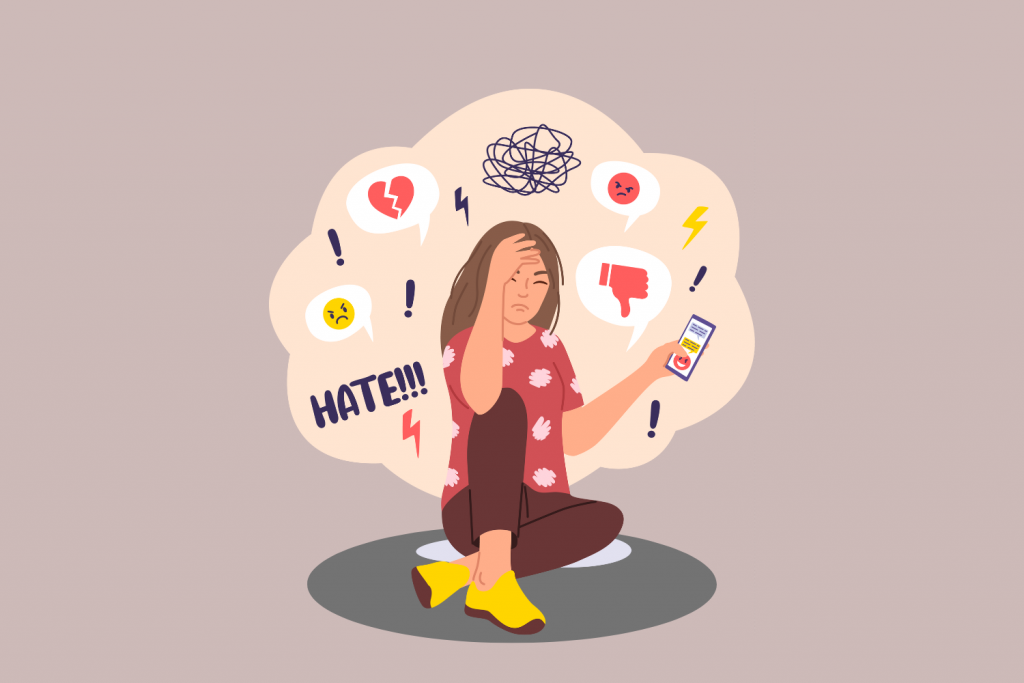American School in London Hannah said the media can oftentimes serve as a “building awareness tool” to bring mental disorders to light. She said media awareness is a crucial step to “help people feel less alone and isolated from everyone else.”
Hannah said various forms of mass media have helped normalize mental health disorders on a global scale.
“TV shows and movies have made such a difference in the world today, working to destigmatize depression and anxiety,” Hannah said.
In addition, American School in London Student Sunny said the manner in which parents treat their children who suffer from these conditions has dramatically improved over recent years due to the media. He said mental health has had an “increasing value when considering the overall health of a person.”
Similarly, American School in London Counselor Kia said standardizing and removing stigma around disorders through celebrities broadcasting the impact of certain conditions they may suffer from has been crucial.
“It’s really important that celebrities have come forward because when a regular person says they suffer, people don’t really give it a lot of merit,” Kia said. “But when it comes from a famous celebrity, people will start to pay attention and it gives that sympathy and also that normalcy to the conditions.”
Likewise, NHS Psychiatrist said the role of celebrities has been extremely significant in terms of initiating an ongoing movement promoting mental health awareness.
“Celebrities speaking about it at the very least, give people an opportunity to, to start to explore that within their own life as well,”.
Nonetheless, American School in London Student Gracie said she feels all forms of media and press have had a duality standpoint on mental health as a whole; on one hand, she said its influence has helped her understand the gravity of her emotions and her need for outer support.
“Knowing that what I was experiencing for myself wasn’t normal helped me be able to seek help,” Gracie said. “As the disorders have recently become more un-stigmatized means I can try to talk to my friends and get help from them.”
However, Gracie said the media can often be the cause for the development of disorders through inaccurate representations of certain conditions or the constant act of comparing oneself to the exemplar.
“A lot of people were faking mental illnesses, and just saying horrible things and then blaming the mental illness itself,” Gracie said. “That was quite bad for people truly suffering from these disorders.”
Similarly, Hannah also said the dangers of the media include false and flawed announcements on mental illness, causing not only misinformation but creating a standard dictating how those suffering from a disease should display their condition.
“All of these glamorized versions of anxiety and depression can be really harmful because they can change the way a person displays their disorder, even though all mental disorders look different on everyone and there is no right or wrong way,” Hannah said.
Moreover, Gracie said sensations of both helplessness and hopelessness can be amplified by mass media via the display of graphic or troubling images and videos.
“Upsetting scenes on TV or in the news can trigger symptoms,” Gracie said. “It can send me down a bad spiral of thinking that this feeling is going to be terrible forever, and there is very little I can do about it.”
Ultimately, Kia said it is important to destigmatize these neuropsychiatric health issues and bring them to light in order to normalize their presence in our world.
“It’s not just one in a million who suffer from this,” Kia said. “Even people that we put up on pedestals suffer from mental conditions. It’s normal and we should treat it as normal, it should not be ostracized.”

